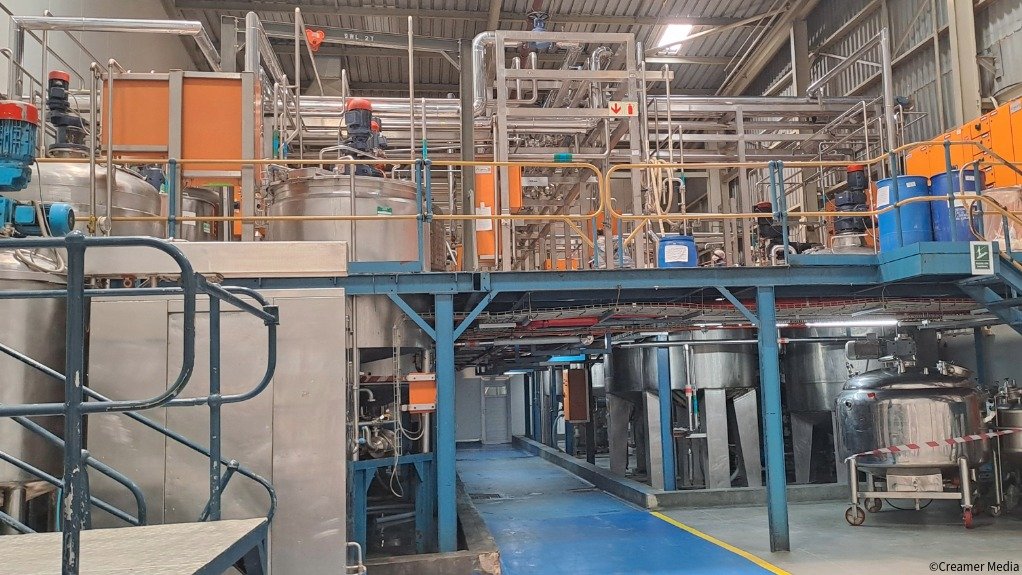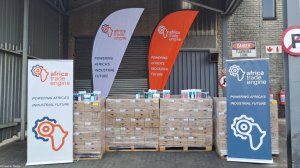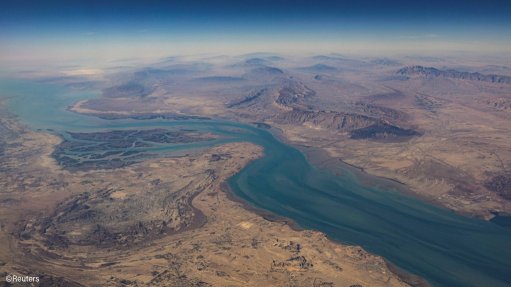Pioneering Africa Trade Engine launched to actualise AfCFTA


Africa Trade Engine (ATE) business development director and TradeDepot chief business officer and president Ruke Awaritefe provides a detailed explanation of ATE.
TRT facility in Midrand
Photo by Creamer Media's Tasneem Bulbulia
Contract manufacturer TRT Manufacturing and distribution business TradeDepot on November 12 launched the Africa Trade Engine (ATE) as an engine for the African Continental Free Trade Area (AfCFTA).
This private-sector joint venture aims to drive trade and job creation, enable global and African brands to produce on the continent, and streamline reach to African markets.
ATE will combine TRT Manufacturing’s industrial expertise in product formulation, manufacturing, quality assurance, export packaging and plant operations with TradeDepot’s digital distribution infrastructure, market access and trade data analytics.
The partnership aims to provide a continent-wide manufacturing and logistics ecosystem, linking regional production hubs from South Africa to Benin, as well as active distribution points in Nigeria, Ghana and Kenya.
ATE would combine factory facilities with a trade operating system, with this connected ecosystem aiming to ensure that the goods Africa produces can move quickly, affordably, and compliantly across borders.
TRT’s facility in Midrand, Gauteng will be leveraged for contract manufacturing, with more set to be pursued across the continent. These two facilities specialise in personal case, homecare, and food and beverage products.
Each facility will aim to build technical expertise and stabilise local livelihoods.
“We are creating supply chain resilience with regionalised production networks ensuring continuity during global disruptions,” said ATE CEO and TradeDepot co-founder Kachi Izukanne.
TradeDepot’s platform enables embedded retail execution and fast commerce through a network of dark stores.
ATE would facilitate export through bonded-trade hubs and regulatory clearance.
ATE would start with localising the production of fast-moving consumer goods, including household and personal care products, with further products targeted as it expands.
ATE is expected to address an estimated $50-billion-a-year import gap and unlock new intra-African trade corridors.
ATE’s distributed manufacturing and pack-out nodes were conceived as a direct response to the Covid-19 supply chain crisis.
Local production is also expected to be more sustainable, reducing long-haul transport emissions considerably and supporting national decarbonisation targets.
Projections show that ATE has the potential to retain over $2-billion of value in the continent over the next two years, with this to also have a multiplier effect.
It is also projected to save 250 000 t of CO2 emissions a year, and create over 12 000 jobs.
Moreover, it is expected to engage 600 000 small, medium-sized and microenterprises (SMMEs), with many of these being women-owned.
Speakers at the launch emphasised that ATE also aims to cater to SMMEs and provide a platform for them to compete.
They also highlighted that ATE serves as a means to shift the narrative on Africa away from the colonial construct of conquer and divide, to one of collaboration and intra-continental trade.
ATE’s model is also expected to deliver measurable and immediate impact across the data and tech fronts.
This will be done through a Localisation Africa Index, a new benchmark for tracking and rewarding brands that localise manufacturing and sourcing.
There will also be data-driven competitiveness, with shared trade data, sector insights and case studies to engender smarter business and policy decisions
Moreover, there will be collaboration between industrial and digital leaders in pursuit of scalable, sustainable growth.
“The Localisation Index will be an accountability framework monitoring how multinational and local brands localise manufacturing, sourcing, and distribution. This will serve as a new environmental, social and governance metric, offering investors and governments a transparent lens into who is truly ‘Made in Africa’,” Izukanne explained.
“The talking is over. ATE ensures Africa’s industrialisation, intra-continental trade and sustainable job creation are not future aspirations but operational realities. Built by African hands and powered by African enterprise, ATE transforms trade theory into trade at work – proving that Africa can manufacture competitively, distribute efficiently, and grow inclusively,” ATE chairperson Adam Molai said.
“Africa’s shift from import dependency to local production is not just an economic imperative – it’s a job creation and climate game-changer,” Izukanne added.
He mentioned at the launch that ATE recognised that Africa had the talent, resources and demand, but too often the link between production and trade was broken. “Without access to market, industrialisation remains a pipe dream.”
Article Enquiry
Email Article
Save Article
Feedback
To advertise email advertising@creamermedia.co.za or click here
Press Office
Announcements
What's On
Subscribe to improve your user experience...
Option 1 (equivalent of R125 a month):
Receive a weekly copy of Creamer Media's Engineering News & Mining Weekly magazine
(print copy for those in South Africa and e-magazine for those outside of South Africa)
Receive daily email newsletters
Access to full search results
Access archive of magazine back copies
Access to Projects in Progress
Access to ONE Research Report of your choice in PDF format
Option 2 (equivalent of R375 a month):
All benefits from Option 1
PLUS
Access to Creamer Media's Research Channel Africa for ALL Research Reports, in PDF format, on various industrial and mining sectors
including Electricity; Water; Energy Transition; Hydrogen; Roads, Rail and Ports; Coal; Gold; Platinum; Battery Metals; etc.
Already a subscriber?
Forgotten your password?
Receive weekly copy of Creamer Media's Engineering News & Mining Weekly magazine (print copy for those in South Africa and e-magazine for those outside of South Africa)
➕
Recieve daily email newsletters
➕
Access to full search results
➕
Access archive of magazine back copies
➕
Access to Projects in Progress
➕
Access to ONE Research Report of your choice in PDF format
RESEARCH CHANNEL AFRICA
R4500 (equivalent of R375 a month)
SUBSCRIBEAll benefits from Option 1
➕
Access to Creamer Media's Research Channel Africa for ALL Research Reports on various industrial and mining sectors, in PDF format, including on:
Electricity
➕
Water
➕
Energy Transition
➕
Hydrogen
➕
Roads, Rail and Ports
➕
Coal
➕
Gold
➕
Platinum
➕
Battery Metals
➕
etc.
Receive all benefits from Option 1 or Option 2 delivered to numerous people at your company
➕
Multiple User names and Passwords for simultaneous log-ins
➕
Intranet integration access to all in your organisation



















